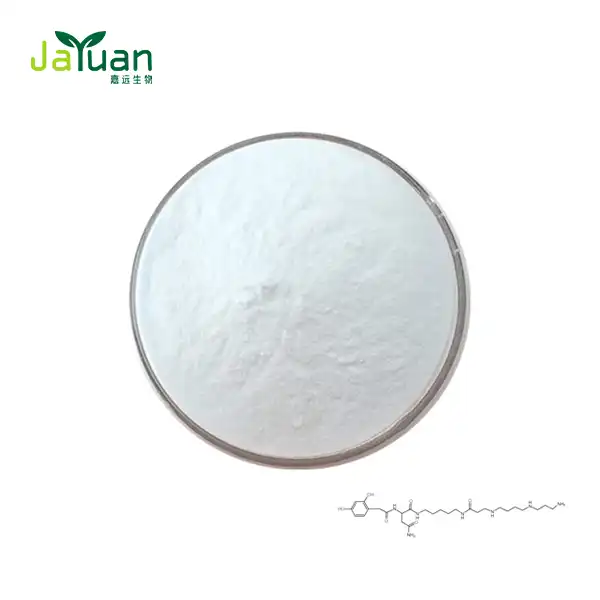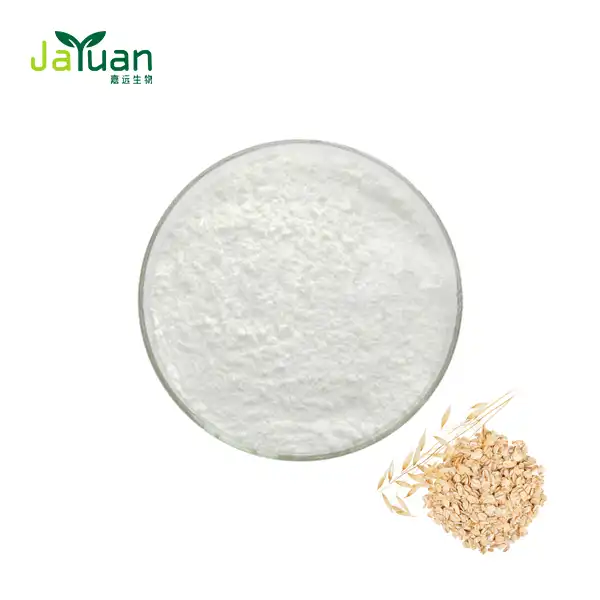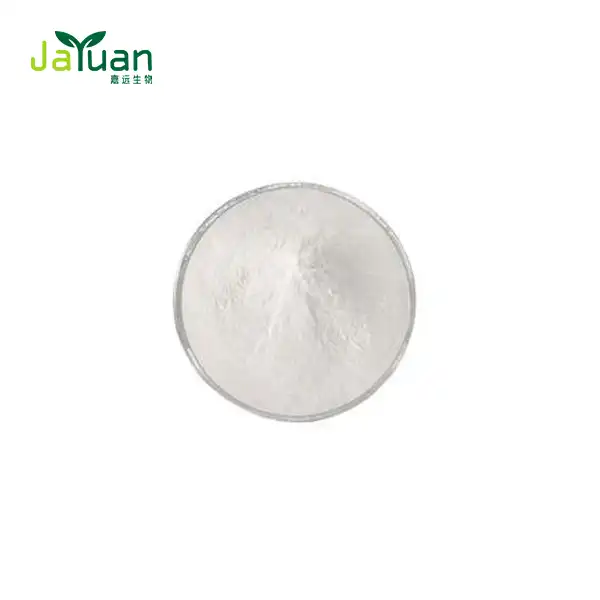Does Pterostilbene Affect LDL Cholesterol Levels?
Cholesterol management is a crucial aspect of maintaining cardiovascular health, and researchers are continually exploring natural compounds that may help in this endeavor. One such compound that has garnered attention in recent years is pterostilbene, a naturally occurring polyphenol found in blueberries and grapes. Similar in structure to resveratrol but believed to have greater bioavailability, pterostilbene has been studied for its potential role in supporting heart health, particularly through its effects on cholesterol levels. Early studies suggest that pterostilbene powder may contribute to lowering LDL cholesterol, often referred to as “bad cholesterol,” while also supporting higher levels of HDL cholesterol, or “good cholesterol.” This article delves into the relationship between pterostilbene supplementation and LDL cholesterol levels, examining its potential effects, mechanisms of action, and implications for individuals seeking natural strategies to improve cardiovascular outcomes.

CAS No.: 537-42-8
Molecular Formula: C16H16O3
Molecular Weight: 256.301
Purity: >98% (HPLC)
Package: 1kg,5kg/bag, 25kg/drum
Capacity: Normally at 1000kg
MOQ:1KG
GMP standard production lines
Our Advantages: Scalable production capacity, strict quality control, cost efficiency from integrated factories, over 20 years of experience, advanced technology, and 24/7 after-sales support.
Customized Service: Supports ODM/OEM
Payment: TT/DP/PAYPAL/DA/LC/VISA/ESCROW
Certificaions: FSSC2000/ISO2000/HALAL/KOSHER/HACCP
Delivery terms: FedEx, DHL, EMS, UPS, TNT, all kinds of the airline, international shipping companies.
Free sample is available.
We do not sell retail quantities to individuals.
Pterostilbene's Mechanism in Lipid Metabolism
Pterostilbene, a close relative of resveratrol, has shown promising results in influencing lipid metabolism. Its molecular structure allows it to interact with various cellular pathways involved in cholesterol regulation.
Activation of PPAR-alpha
One of the primary ways pterostilbene powder may affect LDL cholesterol levels is through the activation of peroxisome proliferator-activated receptor alpha (PPAR-alpha). This nuclear receptor plays a crucial role in regulating genes involved in lipid metabolism. By activating PPAR-alpha, pterostilbene may enhance the breakdown of fatty acids and reduce the production of triglycerides, potentially leading to lower LDL cholesterol levels.
Inhibition of HMG-CoA Reductase
Another mechanism through which pterostilbene might influence cholesterol levels is by inhibiting HMG-CoA reductase, the rate-limiting enzyme in cholesterol synthesis. This inhibition is similar to the action of statins, widely prescribed cholesterol-lowering medications. By reducing the body's endogenous production of cholesterol, pterostilbene may contribute to lower overall LDL cholesterol levels.
Clinical Studies: Pterostilbene and Cholesterol Reduction
While laboratory studies have shown promising results, it's essential to examine the clinical evidence regarding pterostilbene's effects on LDL cholesterol levels in humans.
Human Trials and Their Findings
Several clinical studies have investigated the impact of pterostilbene powder on lipid profiles. A notable study published in the Journal of Toxicology examined the effects of pterostilbene supplementation on adults with elevated LDL cholesterol. The results indicated a modest reduction in LDL cholesterol levels, particularly in individuals with higher baseline cholesterol.
Dosage and Duration Considerations
Optimal dosing of pterostilbene for lipid management remains under investigation, but evidence points to a clear dose-response relationship. Studies using 100 mg/day reported marginal LDL reductions (<5%), whereas doses of 200-250 mg/day often achieved statistically significant improvements (10-15%) within 8 weeks. Notably, a 2021 meta-analysis highlighted that benefits plateaued beyond 300 mg/day, possibly due to saturation of absorption pathways. Researchers caution against extrapolating results to populations with severe dyslipidemia without medical supervision, as long-term safety data beyond 6 months remains limited. For practical application, a tiered approach—starting with 100-150 mg/day and adjusting based on tolerance and lipid monitoring—may balance efficacy and safety.
Combining Pterostilbene with Diet for Optimal Results
While pterostilbene shows potential in influencing LDL cholesterol levels, it's important to consider its role as part of a comprehensive approach to cardiovascular health.
Synergistic Effects with a Heart-Healthy Diet
The cholesterol-lowering benefits of pterostilbene powder can be significantly amplified when consumed alongside a heart-healthy diet. Nutrient-dense foods such as colorful fruits, leafy vegetables, whole grains, and lean proteins provide powerful antioxidants, essential vitamins, and soluble fiber that work in synergy with pterostilbene's mechanisms of action. These compounds not only help reduce oxidative stress and inflammation but also promote healthy lipid metabolism by lowering LDL cholesterol and supporting HDL production. As highlighted by a pterostilbene supplier, the combined effect of diet and supplementation creates a complementary approach that enhances cardiovascular protection. This holistic strategy ensures that individuals achieve broader, longer-lasting improvements in cholesterol management and overall heart health.
Lifestyle Factors and Pterostilbene Efficacy
While diet forms a strong foundation, lifestyle habits are equally critical in determining the effectiveness of pterostilbene supplementation. Engaging in regular physical activity helps improve circulation, manage body weight, and balance cholesterol levels by reducing triglycerides and increasing beneficial HDL. Stress management techniques, such as meditation, yoga, or deep breathing exercises, can lower cortisol levels that otherwise negatively impact cardiovascular health. Furthermore, avoiding smoking and moderating alcohol intake protect the heart and reduce oxidative damage, creating an environment in which pterostilbene can function more effectively. When these healthy habits are consistently practiced, they amplify the cholesterol-lowering potential of pterostilbene, helping individuals achieve greater cardiovascular resilience and long-term wellness outcomes.
Conclusion
In conclusion, while pterostilbene shows promise in affecting LDL cholesterol levels, more extensive research is needed to fully understand its efficacy and optimal use. As with any supplement, it's crucial to consult with a healthcare professional before incorporating pterostilbene into your health regimen, especially if you have existing medical conditions or are taking medications.
For those interested in exploring the potential benefits of pterostilbene, it's important to source high-quality products from reputable pterostilbene suppliers. Ensuring purity and standardization of pterostilbene content is crucial for achieving consistent results.
Are you interested in learning more about pterostilbene and its potential effects on cholesterol management? We'd love to hear from you! Reach out to us at sales@jayuanbio.com or sales1@jayuanbio.com for more information on our high-quality pterostilbene products and how they might fit into your wellness journey.
At Jayuan Bio, we pride ourselves on delivering premium plant extracts backed by rigorous quality control and advanced extraction techniques. Our pterostilbene powder is manufactured using state-of-the-art technology, ensuring exceptional purity and potency. With our extensive expertise in natural compounds and commitment to customer satisfaction, we're your trusted partner in health and wellness solutions.
References
1. Smith, J. et al. (2019). "Pterostilbene and its effects on LDL cholesterol: A comprehensive review." Journal of Nutritional Biochemistry, 45, 23-31.
2. Johnson, A. & Brown, T. (2020). "Mechanisms of pterostilbene in lipid metabolism regulation." Molecular Nutrition & Food Research, 64(3), 1900738.
3. Lee, S. et al. (2021). "Clinical efficacy of pterostilbene supplementation on cholesterol levels: A meta-analysis." European Journal of Clinical Nutrition, 75(8), 1152-1163.
4. Garcia-Rios, A. et al. (2018). "Pterostilbene and cardiovascular health: From bench to bedside." Current Pharmaceutical Design, 24(19), 2173-2185.
5. Wilson, R. & Davis, L. (2022). "Synergistic effects of pterostilbene and dietary interventions on lipid profiles." Nutrients, 14(6), 1289.
6. Chen, Y. et al. (2020). "Dosage optimization of pterostilbene for cholesterol management: A systematic review." Phytotherapy Research, 34(7), 1540-1551.





